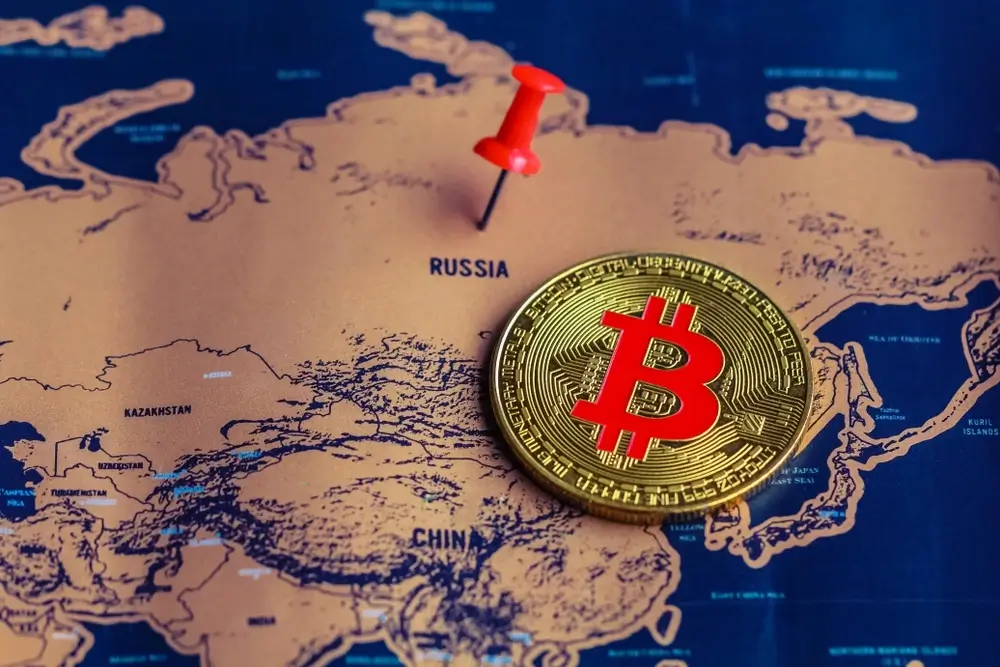Russia to Monitor Cross-Border Crypto Transactions to Curb Illegal Transfers
02.10.2024 20:30 2 min. read
The Bank of Russia plans to monitor all cross-border cryptocurrency transactions over the next six months, involving 19 major banks such as Citibank, MTS Bank and Raiffeisenbank.
These banks will report detailed information on the parties involved, the transaction methods and the payment systems used. The aim is to regulate illegal transfers and control capital flows as Russia increases its focus on international crypto payments and reduces its reliance on the US dollar.
Kristina Mkrtchyan of the Moscow Digital School noted that this data could help control illegal transactions, although experts question its accuracy due to the prevalence of peer-to-peer (P2P) transactions.
In July 2024, Russia approved the use of cryptocurrencies for international payments, reversing its previous stance as tensions with the US escalated. The country is exploring the possibility of regulated cross-border digital payments to avoid Western sanctions.
Meanwhile, Russia has accelerated the development of its digital ruble, aiming for mass adoption by 2027. It also plans to create stablecoins linked to the Chinese yuan and BRICS currencies, as well as two new crypto exchanges in Moscow and St. Petersburg.
The Bank of Russia has assured that the digital ruble will not affect inflation as it changes the money structure from cash to digital, keeping the supply constant. However, inflationary pressures have risen due to the ongoing conflict with Ukraine, prompting the central bank to raise interest rates from 18% to 19% in September 2024.
-
1
Binance Could Introduce Golden Visa Option for BNB Investors Inspired by TON
07.07.2025 8:00 1 min. read -
2
Weekly Recap: Key Shifts and Milestones Across the Crypto Ecosystem
06.07.2025 17:00 4 min. read -
3
Trump Imposes 50% Tariff on Brazil: Political Tensions and Censorship at the Center
10.07.2025 7:00 2 min. read -
4
Key Crypto Events to Watch in the Next Months
20.07.2025 22:00 2 min. read -
5
USA Imposes Tariffs on Multiple Countries: How the Crypto Market Could React
08.07.2025 8:30 2 min. read
Bitwise CIO: The Four-Year Crypto Cycle is Breaking Down
The classic four-year crypto market cycle—long driven by Bitcoin halvings and boom-bust investor behavior—is losing relevance, according to Bitwise CIO Matt Hougan.
Strategy to Raise Another $2.47 Billion for Bitcoin Acquisition
Strategy the company formerly known as MicroStrategy, has announced the pricing of a new $2.47 billion capital raise through its initial public offering of Variable Rate Series A Perpetual Stretch Preferred Stock (STRC).
AI Becomes Gen Z’s Secret Weapon for Crypto Trading
A new report from MEXC reveals a striking generational shift in crypto trading behavior: Gen Z traders are rapidly embracing AI tools as core components of their strategy.
3 key Reasons Behind Today’s Crypto Market Drop
The crypto market shed 1.02% in the past 24 hours, led by a sharp Bitcoin drop and fading altcoin interest.
-
1
Binance Could Introduce Golden Visa Option for BNB Investors Inspired by TON
07.07.2025 8:00 1 min. read -
2
Weekly Recap: Key Shifts and Milestones Across the Crypto Ecosystem
06.07.2025 17:00 4 min. read -
3
Trump Imposes 50% Tariff on Brazil: Political Tensions and Censorship at the Center
10.07.2025 7:00 2 min. read -
4
Key Crypto Events to Watch in the Next Months
20.07.2025 22:00 2 min. read -
5
USA Imposes Tariffs on Multiple Countries: How the Crypto Market Could React
08.07.2025 8:30 2 min. read

